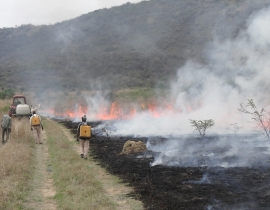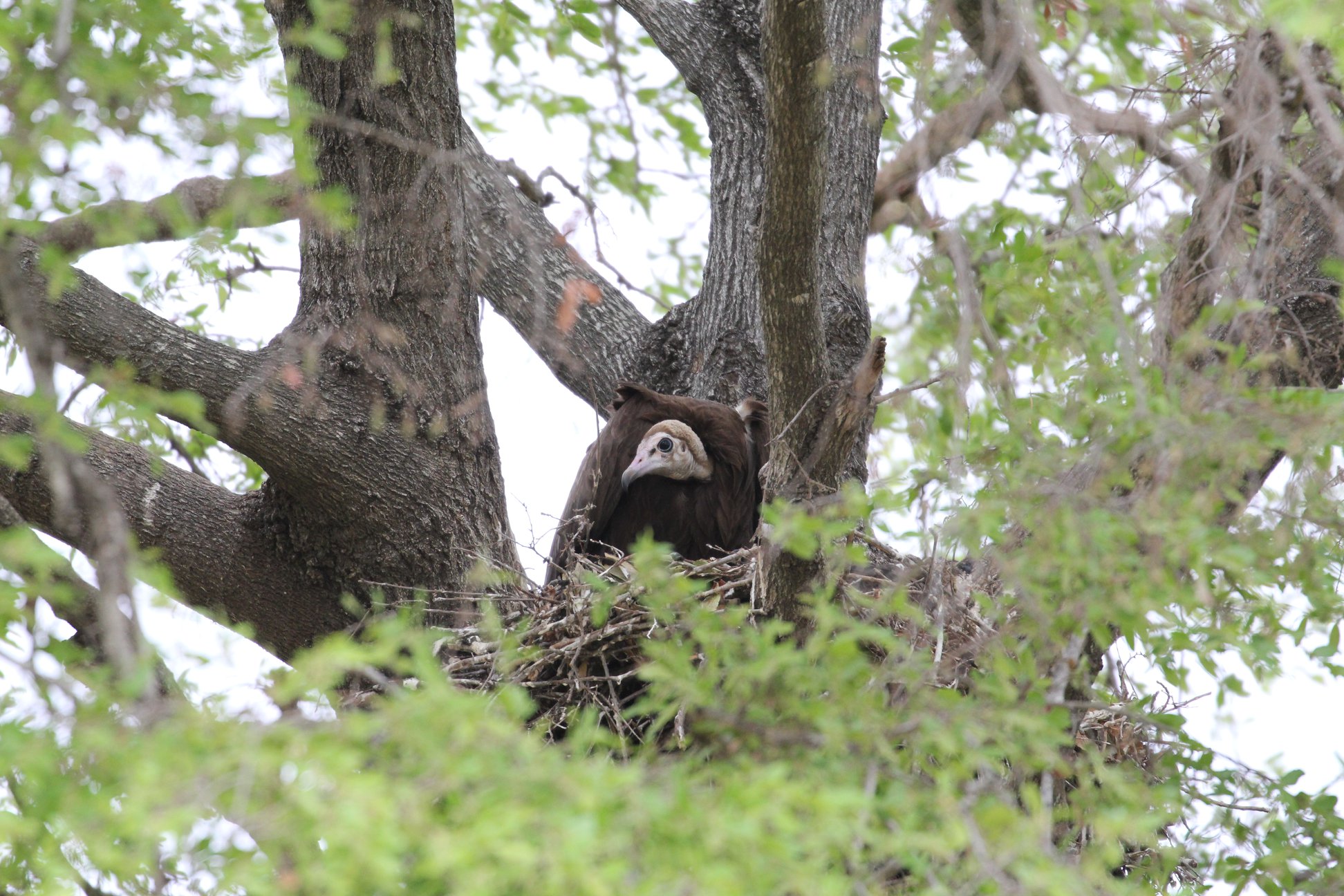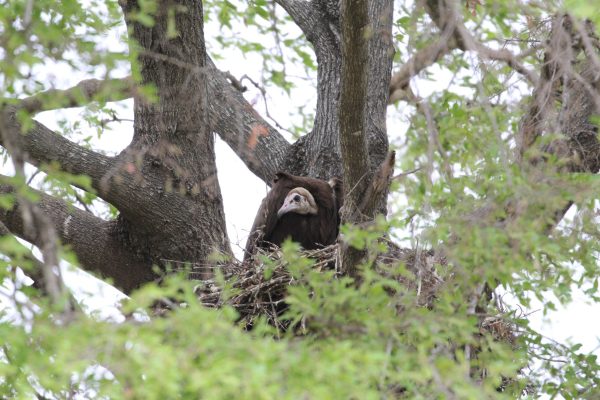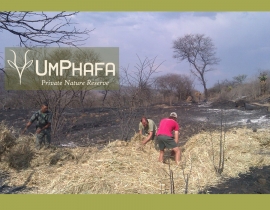Posted June 16, 2015 in Africa
 As summer at UmPhafa Reserve comes to an end and our dry winter season begins, we undertake one of our major yearly projects on the reserve. After the first frost we start to burn the boundaries of our whole reserve with what we term ‘firebreaks’.
As summer at UmPhafa Reserve comes to an end and our dry winter season begins, we undertake one of our major yearly projects on the reserve. After the first frost we start to burn the boundaries of our whole reserve with what we term ‘firebreaks’.
This involves burning, where possible, sections covering 3-4 meters along the fence line. These breaks are in place to ensure that any fires that break out beyond our boundaries cannot then cross over onto our lands. The dry season means that there will be no rain for a number of months making our grasslands very dry. Any unplanned fires that break out can spread incredibly fast and become difficult if not impossible to control due to the intensity or the terrain. These types of fires can have devastating consequences if animals get trapped or freeze due to the panic of the unknown. Therefore it is essential to get the breaks completed as quickly as possible.
One of the problems we have when undertaking the breaks is the weather. If the wind is too strong then burns have to be put on hold. This means all over the reserve projects are put on hold if it is deemed a good day to burn and all the staff and interns assist. The burns can take up to 3 weeks to complete. After the dry season when we start to head into summer we will look at block burning specific areas on the reserve to get rid of dead grass and promote new growth. We rotate areas to ensure that the same area does not get burnt every year. We burn areas at various locations on the reserve. This is to try to ensure that when the new growth comes through one specific area does not get overgrazed by the animals.
Management of our vegetation in this way is an incredibly important aspect of reserve management. The vegetation determines the number of animals that we can have. It is our responsibility to look after it and provide maximum yield for our browsers and grazers. When running a game reserve it is not simply fencing an area and then putting whatever you wish on the lands. There is a science and a lot of hard work behind what we do here on UmPhafa.
Article kindly written by UmPhafa Ranger, Sarah Smuts.




